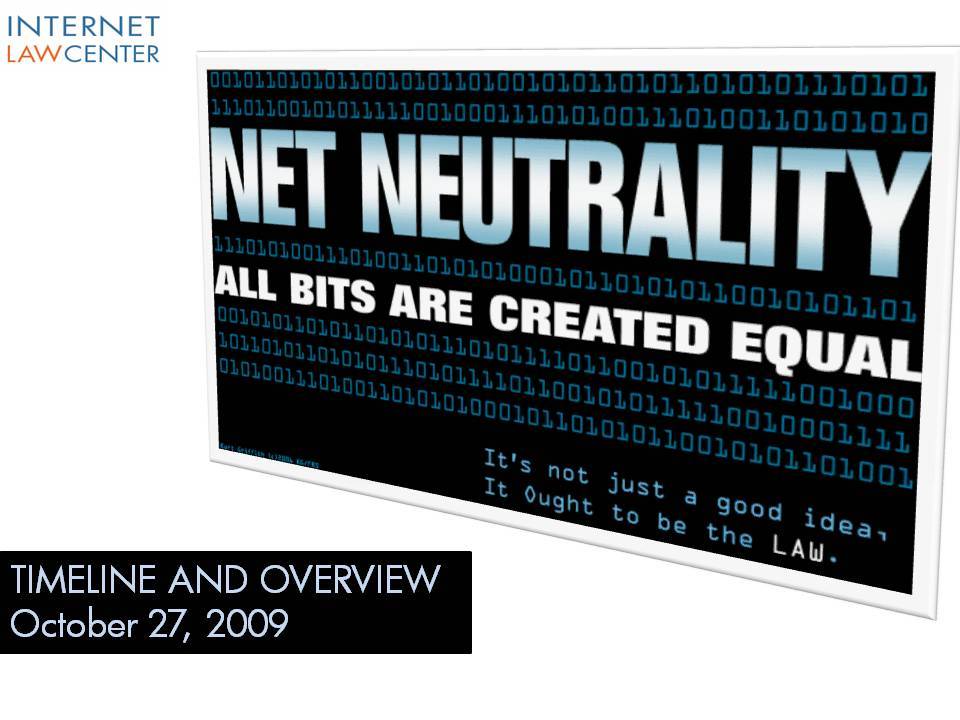
Lost in the cacophony of rhetoric over President Obama’s stimulus plan, health care, climate change and internet neutrality initiatives, is the common thread in each issue -- making America more competitive in a 21 century economy. While the “pro-business Republicans” hope to score political points by answering “No” to each proposal, in each case their success will be at the expense of American business and our global competitiveness.
This has been especially true in dealing with issues of technology such as broadband deployment and internet neutrality (aka Net Neutrality). The U.S. has fallen significantly behind its European and Asian counterparts both in terms of broadband penetration and average download speed, ranking 24 among nations in terms of broadband subscribers and 28 in average internet connection speeds.
Why does this matter?
A 2007 Brookings Institute report found that a three percent increase in broadband penetration in the U.S. would yield nearly 900,000 jobs. In addition, because nations like Japan have download speeds that are four to eight times faster than the U.S., our overseas competitors will be able to increase productivity and deploy new technologies well ahead of their introduction into the United States. Think of it as the difference between Xbox and Pong (or in more concrete terms in the area of telemedicine it would take nearly seven hours to transfer 30 MRIs at the average U.S. broadband speed compared to only 43 minutes in Japan -- leaving them time to download all six Star Wars movies nearly 7 times.)
What is Net Neutrality and Why Should I Care?
For those of you who think of Net Neutrality as a cyber-Switzerland where web users yodel in clockwork precision (if you really cherish that image please jump to the next paragraph), it would be helpful to know that Net Neutrality is a set of basic principles prohibiting internet service providers from engaging in anti-competitive behavior or otherwise discriminating as to the extent users or technologies are given access to their network. A recent study found that countries enforcing neutrality have created a more competitive environment that fostered greater development and adoption of broadband technologies.
The Net Neutrality debate heated up last year when the Federal Communications Commission (FCC) found that cable giant Comcast violated FCC guidelines by throttling (i.e., disconnecting) users accessing file sharing sites. Last week, President Obama’s new FCC Chairman Julius Genachowski got the FCC to start the process of formalizing these guidelines and extending them to wireless platforms. Nonetheless, the Republicans reflexively opposed the initiative asserting that prohibiting internet service providers from engaging in discriminatory and anti-competitive conduct was a “government takeover of the internet;” even though the neutrality guidelines were adopted under Bush and conservative groups such as the Christian Coalition support neutrality.
What’s the Connection to Climate Change?
Given their mantra of “drill baby drill,” the same phenomenon is occurring in the debate over climate change legislation. The GOP’s petrol-colored glasses blind them to the vital role green tech will play in 21 century economic growth. The House bill is projected to create 1.7 million green tech jobs, as investments in clean energy yield four times as many jobs as investment in the oil and gas industry. Although dismissed by Republicans as “paper mache” jobs, they include many manufacturing jobs since, for example, a single wind turbine contains up to 400 tons of steel, along with 8,000 parts from copper wire, gearboxes and ball bearings to electronic controls.
Currently the United States remains atop Ernst & Young’s Renewable Energy Country Attractiveness Index, but the gap is getting smaller. Under President Bush, a $12 billion surplus in green trade dropped to an $8.9 billion deficit. This deficit is largest in Asia where China (which has jumped from 11 to 2 on the E&Y Index), is outspending the U.S. six to one in green tech and its neighbor South Korea has launched an $85 billion “Green New Deal” that it projects will generate 1.8 million green jobs.
The paradox of China’s dismal past record on the environment is that it is fast becoming a huge market for green tech and will reach $1 trillion in four years. GOP lawmakers, however, seem willing to cede this market to the Chinese and other competitors.
In opposing these internet and green tech initiatives, the GOP is being pro-“special interest”, not pro-business. While they will attempt to obscure this important debate with political buzz words, ultimately this debate boils down to whether we are going to be the nation that summoned its resources through efforts like the Manhattan and Apollo projects to not only meet the challenges of a new era but be at the forefront of innovation -- or whether we will be content simply playing Pong.

